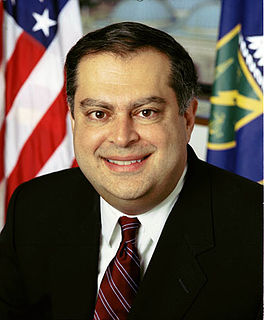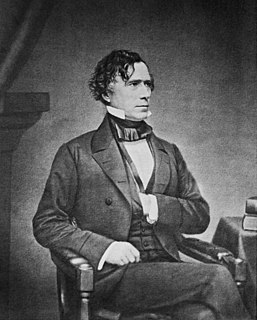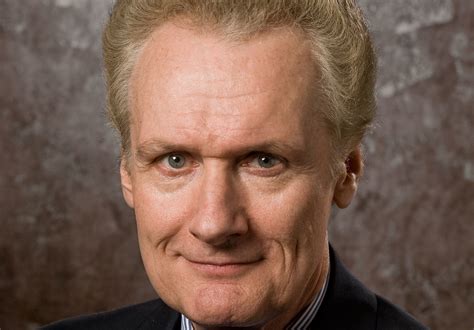A Quote by Thomas Jefferson
It is important to strengthen the State governments; and as this cannot be done by any change in the Federal Constitution (for the preservation of that is all we need contend for), it must be done by the States themselves, erecting such barriers at the constitutional line as cannot be surmounted either by themselves or by the General Government. The only barrier in their power is a wise government. A weak one will lose ground in every contest.
Related Quotes
The federal government neither has the power to site transmission lines, nor do we build them. That's done, as people know, in their own communities. The siting decisions and the permitting is done at the local level, or by state governments if it's interstate in nature. And federal government - this is one area we have no authority.
But ambitious encroachments of the federal government, on the authority of the State governments, would not excite the opposition of a single State, or of a few States only. They would be signals of general alarm . . . But what degree of madness could ever drive the federal government to such an extremity.
It [the Constitution] didn't break free from the essential constraints that were placed by the founding fathers in the Constitution, at least as it's been interpreted, and the Warren court interpreted it in the same way that generally the Constitution is a charter of negative liberties. It says what the states can't do to you, it says what the federal government can't do to you, but it doesn't say what the federal government or the state government must do on your behalf. And that hasn't shifted.
The constitutionality and propriety of the Federal Government assuming to enter into a novel and vast field of legislation, namely, that of providing for the care and support of all those ... who by any form of calamity become fit objects of public philanthropy. ... I cannot find any authority in the Constitution for making the Federal Government the great almoner of public charity throughout the United States. To do so would, in my judgment, be contrary to the letter and spirit of the Constitution and subversive of the whole theory upon which the Union of these States is founded.
Resolved, That the General Assembly of Virginia, doth unequivocally express a firm resolution to maintain and defend the Constitution of the United States, and the Constitution of this State, against every aggression either foreign or domestic, and that they will support the Government of the United States in all measures warranted by the former.
A constitution is not the act of a government, but of a people constituting a government; and government without a constitution is power without a right. All power exercised over a nation, must have some beginning. It must be either delegated, or assumed. There are not other sources. All delegated power is trust, and all assumed power is usurpation. Time does not alter the nature and quality of either.
The President, and government, will only control the militia when a part of them is in the actual service of the federal government, else, they are independent and not under the command of the president or the government. The states would control the militia, only when called out into the service of the state, and then the governor would be commander in chief where enumerated in the respective state constitution.
I consider the government of the United States as interdicted by the Constitution from intermeddling with religious institutions, their doctrines, discipline, or exercises. This results not only from the provision that no law shall be made respecting the establishment or free exercise of religion, but from that also which reserves to the States the powers not delegated to the United States. Certainly, no power to prescribe any religious exercise or to assume authority in any religious discipline has been delegated to the General Government. It must then rest with the States.
Stripped of all its covering, the naked question is, whether ours is a federal or consolidated government; a constitutional or absolute one; a government resting solidly on the basis of the sovereignty of the States, or on the unrestrained will of a majority; a form of government, as in all other unlimited ones, in which injustice, violence, and force must ultimately prevail.




























